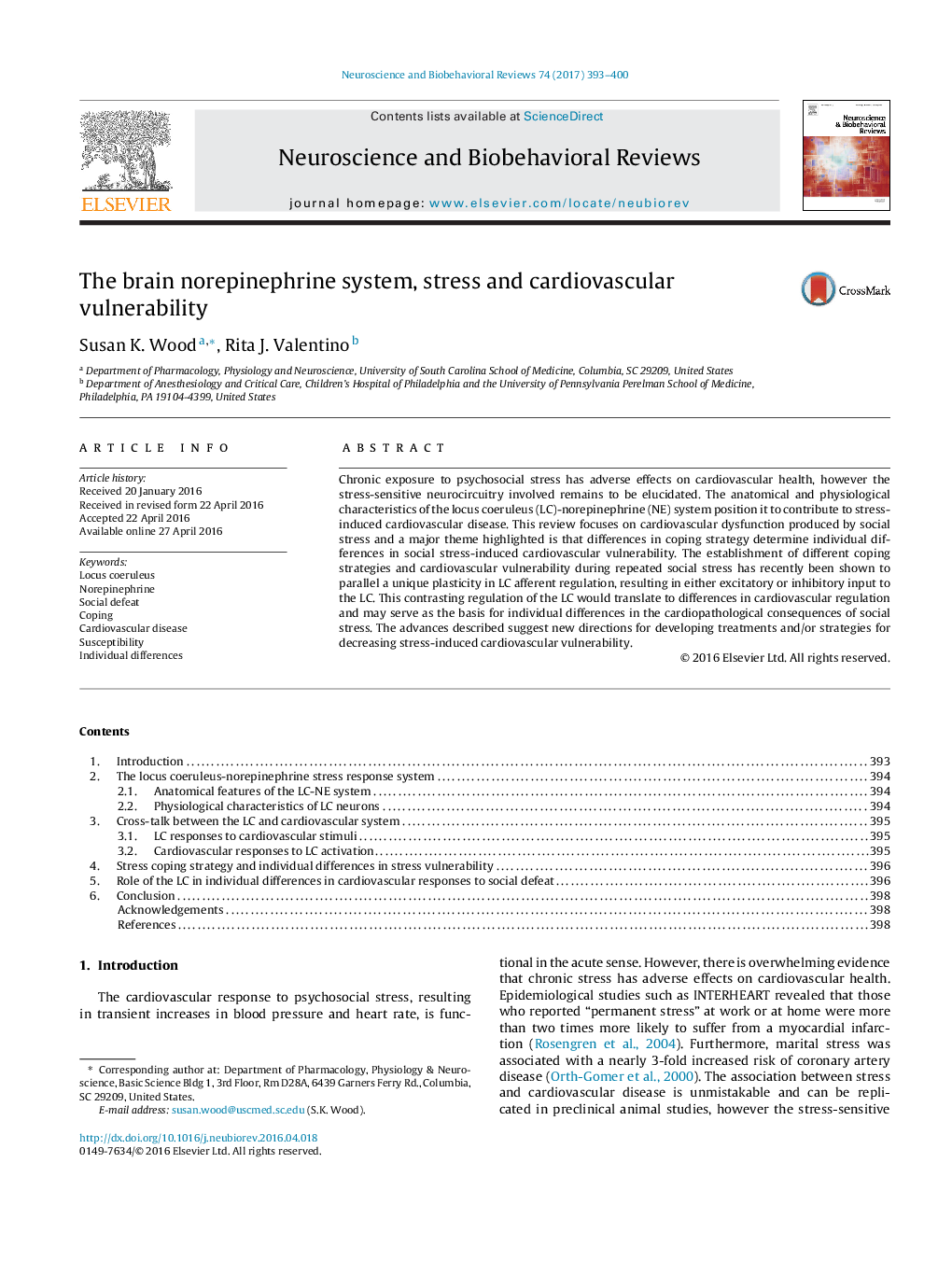| Article ID | Journal | Published Year | Pages | File Type |
|---|---|---|---|---|
| 5043627 | Neuroscience & Biobehavioral Reviews | 2017 | 8 Pages |
â¢Social stress exposure is a risk factor for cardiovascular disease.â¢The anatomical and physiological characteristics of the locus coeruleus-norepinephrine system position it to contribute to stress-induced cardiovascular disease.â¢Individual differences in coping strategies during social stress parallel unique plasticity in LC afferent regulation.â¢Contrasting regulation of the LC would result in differences in cardiovascular regulation, likely contributing to individual differences in the cardiovascular consequences of stress.
Chronic exposure to psychosocial stress has adverse effects on cardiovascular health, however the stress-sensitive neurocircuitry involved remains to be elucidated. The anatomical and physiological characteristics of the locus coeruleus (LC)-norepinephrine (NE) system position it to contribute to stress-induced cardiovascular disease. This review focuses on cardiovascular dysfunction produced by social stress and a major theme highlighted is that differences in coping strategy determine individual differences in social stress-induced cardiovascular vulnerability. The establishment of different coping strategies and cardiovascular vulnerability during repeated social stress has recently been shown to parallel a unique plasticity in LC afferent regulation, resulting in either excitatory or inhibitory input to the LC. This contrasting regulation of the LC would translate to differences in cardiovascular regulation and may serve as the basis for individual differences in the cardiopathological consequences of social stress. The advances described suggest new directions for developing treatments and/or strategies for decreasing stress-induced cardiovascular vulnerability.
